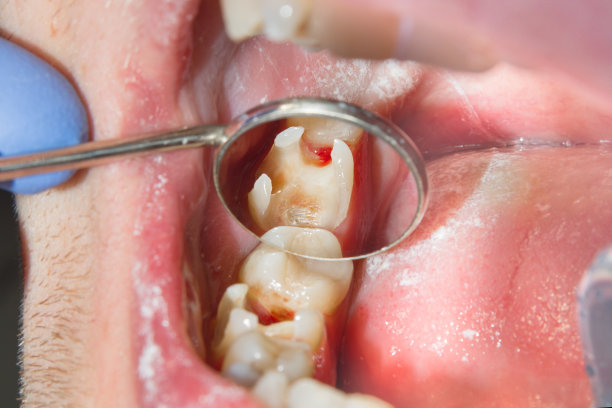Summary: Dental implants are a transformative option for individuals seeking to replace missing teeth and restore oral functionality. This article delves into essential considerations and precautions necessary for successful dental implantation, focusing on four key aspects: patient assessment, surgical technique, post-operative care, and ongoing maintenance. Each of these facets plays a critical role in achieving optimal oral health and ensuring patient satisfaction from the entire dental implant process. Understanding these components will not only assist dental professionals in providing top-notch care but also empower patients in making informed decisions regarding their oral health.
1. Comprehensive Patient Assessment Process

A thorough patient assessment is paramount before any dental implantation procedure. This evaluation involves a detailed medical history review, oral examination, and necessary imaging studies like X-rays or 3D scans. These steps offer valuable insights into the patients overall health and oral condition, which are vital in determining eligibility for implants.
During the consultation, dental professionals should consider factors such as bone density, the presence of periodontal disease, and previous dental work. Conditions like uncontrolled diabetes or smoking habits could adversely affect healing and the success rate of implants. Thus, a crucial part of the assessment includes discussing lifestyle habits and medical concerns with the patient.
Finally, emotional and psychological assessments are beneficial as well. Patients should have realistic expectations and understand the procedures potential risks, enhancing their overall satisfaction. Clear communication about what to expect can significantly influence patient outcomes and their perceptions of the care they receive.
2. Precision in Surgical Technique
The success of dental implant surgery heavily relies on the skill and technique of the dental surgeon. Utilizing precise surgical methods ensures that implants are placed in optimal positions in the jawbone, which is essential for long-term stability. Surgeons should adhere to a meticulous protocol, customizing the approach based on individual anatomical considerations.
Employing advanced technologies, such as guided implant surgery, increases the accuracy of implant placement. This method allows for pre-surgical planning and use of surgical guides, which can reduce the risk of complications. Additionally, maintaining a sterile environment during the procedure is critical in preventing infections that could hinder healing.
Moreover, choosing the right implant materials and understanding the biomechanics involved can greatly influence the surgical outcome. Selection of high-quality titanium implants, for instance, can lead to better integration with the jawbone. Surgeons must also be prepared to adapt their techniques during surgery if atypical conditions are encountered.
3. Effective Post-Operative Care Strategies
Post-operative care is a pivotal aspect of the dental implant process. Proper aftercare can significantly enhance the recovery period and overall success of the implant. Patients should be given clear instructions on managing discomfort, swelling, and potential complications following the surgery.
Implementing a structured follow-up schedule allows for monitoring the healing process and addressing any issues promptly. Patients must be educated on lifestyle modifications, such as dietary changes and smoking cessation, to lower the risk of implant failure.
Moreover, pain management should be a priority in post-surgical care. Prescribing appropriate medication and advising non-drug pain management techniques, including ice packs and rest, can help patients navigate the recovery phase comfortably. Regular check-ins with their dental provider can also bolster patient confidence in the healing trajectory.
4. Long-term Maintenance for Dental Implants
Once the implant has successfully integrated into the jawbone, long-term maintenance becomes vital in ensuring its durability. Patients need to follow an excellent oral hygiene routine, including daily brushing, flossing, and regular dental visits. These practices prevent complications, such as peri-implantitis, which can jeopardize the longevity of the implants.
Dental professionals should emphasize the importance of regular professional cleanings to maintain the surrounding gum health. During these visits, issues can be identified and addressed before they escalate, ensuring the longevity of the dental implants.
Additionally, lifestyle choices play a significant role in the long-term success of implants. Patients should continue to avoid harmful habits and disclose any new health concerns that could impact their oral health. Staying informed and proactive can lead to sustained satisfaction from dental implants.
Summary: The process towards successful dental implantations is an intricate one, involving thorough patient assessments, precise surgical techniques, effective post-operative care, and diligent long-term maintenance. Each of these aspects contributes significantly to optimal oral health and ensures patient satisfaction throughout the journey. By focusing on these essential considerations and taking the necessary precautions, both dental professionals and patients can collaborate for successful outcomes.
This article is compiled by Vickong Dental and the content is for reference only
Vickong Dental
Vickong Dental is a large medical group established in Hong Kong in 2008 by professors from well-known medical universities in Guangdong and Hong Kong, as well as medical doctors from key national '985' universities (including Master's supervisors and senior professors). The chain of branches brings together expert dentists with PhDs and Master's degrees from Hong Kong and Mainland China, committed to providing high-quality dental treatment.
"Vickong Dental Practices the University Motto of 'Healing and Serving Society,' with a Stable Operation for Sixteen Years. It Has Been honored with Hong Kong Enterprise Leaders's Choice,' and is a Global Trusted Implant Center for the Nobel Implant System. Recommended by Hong Kong Metro Broadcast and Guangdong Television, it Serves Customers from Over Thirty Countries and Regions, Gaining the Trust and Favor of Citizens from the Guangdong-Hong Kong-Macau Greater Bay Area and Surrounding Cities.

Thousands of customers' unanimous praise
The most recognized and highly recommended dental service by customers in the Guangdong-Hong Kong-Macau Greater Bay Area
We Ensure You Receive Detailed Care and Attention Here
Hong Kong standards, Shenzhen prices, Your Trusted English-speaking dentists

Vickong Dental Medical-Grade Instrument Disinfection Process
Vickong Dental Medical-Grade Instrument Disinfection Process

Vickong Dental Chain: A Warm and Comfortable Environment for Treatment






Appointment Hours

Q&A
Why choose Vickong Dental?
Vickong Dental practices the university motto 「Medicine to Benefit Society」, with each branch bringing together highly qualified dentists with doctoral and master’s degrees from Hong Kong and the Mainland, and has maintained seventeen years of steady operation。Recipient of 「2024 Hong Kong Enterprise Leaders Brand」, 「2025 Hong Kong Enterprise Leaders Brand」, a Nobel Biocare Global Trusted Implant Center, and a brand recommended by Metro Radio Hong Kong and Guangdong TV。
To date, we have served customers from more than thirty countries and regions,earning exceptionally high word-of-mouth recognition and trusted recommendations from residents across the Guangdong-Hong Kong-Macao Greater Bay Area and surrounding cities
We have eight major branches in Zhuhai、Shenzhen,and a consultation and service assurance center in Hong Kong,so you can book a free consultation at any time for any questions,which is very reassuring.
If I do not accept the quotation after the CT scan, will I be charged??
No! As long as the actual treatment has not started, you will not be charged any fees.
Will there be any additional charges during the treatment process?
No, there won’t be any additional charges. Before treatment begins, we will clearly explain the treatment plan and its corresponding fees. Only after the patient agrees and signs the consent form will we proceed with the dental service.
Can I pay in Hong Kong dollars?
Yes. Vickong Dental accepts payment in Hong Kong dollars. The amount will be converted based on the exchange rate of the day, and the applicable rate will be clearly communicated to you in advance.
Can I reschedule my appointment at any time?
Yes. Please contact us via **WeChat** or **WhatsApp** as early as possible, providing your original appointment time and details, along with your preferred new date and time slot for rescheduling.













